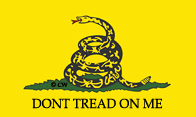From an essay by Deneen, who enlightens from actual history, not the "made-up" history prevailing since 1980 or so...
...American “conservatism” became considerably anti-traditional. In occupying the abandoned space of Lockeanism, it resided with the deep anti-traditionalism that lie at the heart of Locke’s philosophy. “Traditionalism” is, of course, almost as meaningless a word in the abstract as conservatism: what it most fundamentally seeks to signal is the legitimacy of authority – lodged in “the ancestral,” practice and longstanding custom, culture, and tradition – as the basis of rule and power. That rule is represented by the paternal, the authority vested in an older generation by dint of their inheritance of tradition and their responsibility in its transmission to subsequent generations. Locke’s mostly unread First Treatise on Government is devoted to a lawyerly (and very devastating) evisceration of the theory of Patriarchy as devised by Robert Filmer; while Filmer sought to meld parental authority with a defense of Kingship (i.e., that Adam was the first King and then-contemporary Kings were Adam’s heirs), the larger game that Locke was hunting was the de-legitimation not simply of hereditary monarchy, but of all forms of traditional authority. As developed in the Second Treatise, legitimate authority could only be chosen authority. Hence, even the authority of fathers and mothers eventually gave way at the age of “nonage”: children no longer owed parents any filial piety once they reached the age of maturity, unless, that is, the children chose such piety. Locke’s overarching ambition was the dissolution of all authoritative claims based in tradition: because things had been done in some way by previous generations was no basis for its legitimacy. The only basis of legitimacy was the free choice of successive new generations. The authority of the ancestral was displaced by the authority of choice.
Burke, of course, saw that, too.
What (at least partially) redeems this decidedly anti-nomian view?
In the context of 20th-century history and philosophy it is possible to regard this position as “conservative.” Compared to communism or theories of justice that hold the possibility of ever-greater moral perfection of human beings, Locke’s view of humans as endowed with a basic and unalterable nature – self-interested individuals – at least resembles aspects of pre-modern anthropology in retaining some recognizable elements of the Fall.
"Perfectibility" underlies the political/philosophical "evolution" theory; in its far more crass manifestation, it also underlies the "global warming" hysteria. That is, the climate theorists (Gore-ites) believe that man can be 'perfected' with the result that the climate can be 'perfected.'
Laws of thermodynamics (esp. entropy) be damned!
Finally, we are here:
Growing numbers of social traditionalists (let’s not call them “conservatives,” lest we confuse the issue) are realizing that the coalition they joined was a devil’s bargain. While communism was successfully combated, market capitalism did its work undermining most of the traditions that held together communities, folkways and customs. Communities were undermined by multinationals while elite universities scoured the land for any talent that could be strip-mined from localities and turned into productive material in the international market system. If you weren’t a winner in the cosmopolitan, meritocratic sweepstakes then you deserved some kind of welfare and re-education; the norm of success was defined by one’s distance from traditions and culture
It's true that Deneen paints with a broad brush; there is a wealth of nuance that he avoids for the sake of the essay form.
But he's right.
Subscribe to:
Post Comments (Atom)




No comments:
Post a Comment